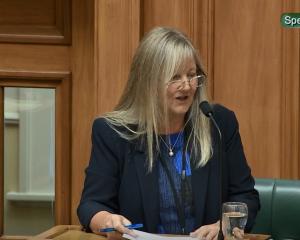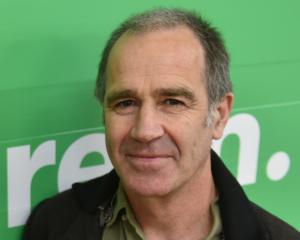Consumers do not have much to look forward to tomorrow as a string of price and levy increases are brought in by the Government.
While most focus has been on the price increases caused by the introduction of the first stage of the contentious emissions trading scheme (ETS), the substantial increases to ACC levies have almost escaped unnoticed.
Motorists will be particularly hard hit.
Not only will the price of fuel increase from tomorrow, probably by 3c a litre, but the ACC levy on car registration will increase by $30 a year to $198.46.
Motorcyclists fare much worse.
Those owning petrol motorcycles up to 600cc will face a 30% increase in their ACC levy as it rises to $327.70 from $252.69.
Owners of motorcycles of more than 601cc face a 69% increase in their levy to $426.92.
Combined with registration fees and petrol tax, this means motorcyclists will pay $517.25 a year just to keep their bikes on the road.
The only redeeming feature was that the rises were not as high as recommended by ACC, which told the Government last year the 600cc levy should rise to $511.43 and the more than 601cc levy should rise to $745.77.
Wage and salary earners have not escaped from the rising ACC charges.
The earners' account levy, paid by all employees and the self-employed to cover their non-work, non-motor vehicle injuries, increased in April from $1.70 to $2 per $100 earned.
At the same time, the average composite employer and self-employed levy increased from $1.31 to $1.47 per $100 of payroll.
All up, an employee on an income of $49,500 per year will face an increase in their ACC earners' levy, deducted from each pay packet by the Inland Revenue Department of $148.50 per year as it moves from $841.50 in the year ended June 2010 to $990 in 2011.
If they own a car, their total levy payment to ACC for 2011 will rise from $1128.42 a year to $1306.92.
In October, petrol and diesel will increase further through a higher excise tax and GST moving to 15%.
Petrol is expected to be 10c a litre higher in October and diesel will cost about 6c a litre more.
The ETS is already causing controversy as some power companies announce they are increasing their prices by well above earlier estimates.
Prime Minister John Key and some of his ministers have in recent days warned power companies - some of them state-owned - that price gouging in the face of the ETS was not acceptable.
"I'm concerned because some of the power companies are claiming that the emissions trading scheme is the reason they want to raise prices by double digits. Well, that can't possibly be the case.
"The estimates we've had is at most a 5% increase in power prices and in the majority of cases, it will be less than that," Mr Key said yesterday.
The Otago Daily Times had earlier calculated that the ETS would mean increased household expenditure of anywhere between $165 and $330 a year.
A Government spokesman disputed those figures and Mr Key is sticking to the "average household" facing increased expenditure of about $3 a week.
Mr Key also maintained that the likes of ACC levies and GST increases, along with the ETS burden on taxpayers, would not overtake the gains set to be made by many New Zealanders through tax cuts announced in the Budget.
A projected 6% spike in inflation next year was a one-off and Treasury figures suggested wage earners would still be better off, he said.












